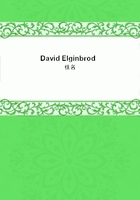
第157章
This is a very important distinction in morals, but often overlooked. When a man is acting with his inclination, his will is in abeyance. In our present imperfect condition, it seems to me that the absolute will has no opportunity of pure action, of operating entirely as itself, except when working in opposition to inclination. But to return: the power of the biologist appears to me to lie in this--he is able, by some mysterious sympathy, to produce in the mind of the patient such forceful impulses to do whatever he wills, that they are in fact irresistible to almost all who are obnoxious to his influence. The will requires an especial training and a distinct development, before it is capable of acting with any degree of freedom. The men who have undergone this are very few indeed; and no one whose will is not educated as will, can, if subjected to the influences of biology, resist the impulses roused in his passive brain by the active brain of the operator.
This at least is my impression.
"Other things no doubt combined to increase the influence in the present case. She liked him, perhaps more than liked him once. She was partially committed to his schemes; and she was easily mesmerised. It would seem, besides, that she was naturally disposed to somnambulism. This is a remarkable co-existence of distinct developments of the same peculiarity. In this latter condition, even if in others she were able to resist him, she would be quite helpless; for all the thoughts that passed through her brain would owe their origin to his.--Imagine being forced to think another man's thoughts! That would be possession indeed! And this is not far removed from the old stories about the demons entering into a man.--He would be ruler over the whole intellectual life that passed in her during the time; and which to her, as far as the ideas suggested belonged to the outward world, would appear an outer life, passing all round her, not in her. She would, in fact, be a creature of his imagination for the time, as much as any character invented, and sent through varied circumstances, feelings, and actions, by the mind of the poet or novelist. Look at the facts.
She warned you to beware of the count that night before you went into the haunted bed-chamber. Even when she entered it, by your own account--""Entered it? Then you do think it was Euphra who personated the ghost?""I am sure of it. She was sleep-walking."
"But so different--such a death-like look!"
"All that was easy enough to manage. She refused to obey him at first. He mesmerized her. It very likely went farther than he expected; and he succeeded too well. Experienced, no doubt, in disguises, he dressed her as like the dead Lady Euphrasia as he could, following her picture. Perhaps she possessed such a disguise, and had used it before. He thus protected her from suspicion, and himself from implication.--What was the colour of the hair in the picture?""Golden."
"Hence the sparkle of gold-dust in her hair. The count managed it all. He willed that she should go, and she went. Her disguise was certain safety, should she be seen. You would suspect the ghost and no one else if she appeared to you, and you lost the ring after.
But even in this state she yielded against her better inclination, for she was weeping when you saw her. But she could not help it.
While you lay on the couch in the haunted chamber, where he carried you, the awful death-ghost was busy in your room, was opening your desk, fingering your papers, and stealing your ring. It is rather a frightful idea.""She did not take my ring, I am sure. He followed her, and took it.--But she could not have come in at either door--""Could not? Did she not go out at one of them? Besides, I do not doubt that such a room as that had private communication with the open air as well. I should much like to examine the place.""But how could she have gone through the bolted door then?""That door may have been set in another, larger by half the frame or so, and opening with a spring and concealed hinges. There is no difficulty about that. There are such places to be found now and then in old houses. But, indeed, if you will excuse me, I do not consider your testimony, on every minute particular, quite satisfactory.""Why?" asked Hugh, rather offended.